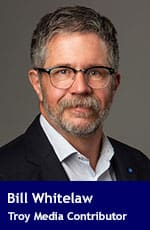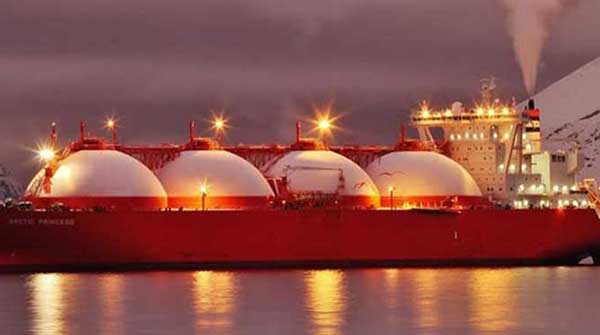 It may seem like an impossible challenge to crowdsource a narrative about building a better future for Canadians and their energy sector.
It may seem like an impossible challenge to crowdsource a narrative about building a better future for Canadians and their energy sector.
A diverse group has set out to create a compelling and co-ordinated narrative around Canada’s global liquefied natural gas (LNG) opportunities.
At a recent Calgary meeting, a diverse group of stakeholders agreed it’s critical to ensure a future free of adversarial and divisive debate through more productive and constructive communications.
To this point, industry has been inept at creating a narrative that defines and illuminates the value of oil and gas to Canadians.
And forces that oppose the sector’s very existence at every turn are extraordinarily adept at the confrontational narrative game.
Recently, JWN Energy, the Resource Works, Canadian Society for Unconventional Resources and the Canadian Global Affairs Institute issued an invitation to anyone interested in helping create and sustain a better narrative about LNG. The focus is on what it means to the Canadian natural gas economy domestically and internationally, and to the overarching national interest.
Nearly 120 people indicated an interest in the initiative and, as a result, we truly had a pan-national microcosm of interested parties. They agreed on one key principle: it’s imperative we do a better job creating and sustaining a compelling narrative. It was a crowdsourcing approach at its best.
Governments showed up. Investors showed up. First Nations showed up. Advocacy and technology groups showed up. Oilfield services companies showed up. Industry associations were there. Midstream and pipeline reps were there. Academics took a seat.
Oh yes, oil and gas companies that produce natural gas also showed up, including partners in the massive LNG Canada consortium, which represents the largest infrastructure investment in Canadian history.
Attendees heard experts discuss the size of the prize and the dangers of missing the LNG brass ring by failing to co-ordinate. This included the importance of nurturing true partnership with First Nations communities – partnerships that respect and honour First Nations culture and environmental ethos.
Attendees also heard how important it is to avoid the regionalism to which Canada is so easily disposed. If Canada is incapable in a complex international market of acting in a unified way, it will never be viewed as a serious global contender.
There were key points of consensus:
- Politicians at all levels of government need to align and be better informed.
- Opponents to hydrocarbon development are very well organized, so the industry has to step up its game.
- Ordinary Canadians need to be better informed about the important role the energy sector plays in driving the Canadian economy.
- We can build a natural gas sector that’s pivotal in mapping Canada’s clean energy future.
- Canada has a key role to play in global climate leadership, in large part through its approach to regulation and innovation.
For CGAI president Kelly Ogle, the session underscored the importance of getting the public policy foundations right. The institute will explore that dynamic in a 12-part series of peer-reviewed papers exploring Canada’s place in a globalized LNG economy. The papers are foundational to a successful narrative, said Ogle.
“It’s clear there’s incredible complexity to be overcome … it’s our view that good policy dialogue will help provide the clarity to navigate it.”
One common belief cemented stakeholder perspectives: the LNG economy is too important an opportunity to let internal industry misalignments interfere with progress. It’s critical to stay ahead of the well-organized opposition forces that are determined to keep hydrocarbons locked below ground, noted Resource Works executive director Stewart Muir.
“The better aligned and more co-ordinated we are as a spectrum of stakeholders, the more efficient we will be at telling our stories to the right audience at the right time, for the right reasons,” he added.
Next steps for the fledgling group include a similar session in Ottawa, to connect politicians and senior bureaucrats with the opportunity’s dynamics, said Ogle.
Another key step will be to select the technology platform that connects stakeholders while allowing them to pursue their own LNG strategies.
Narrative building is not an overnight effort – we know we’re in a marathon, not a sprint. But if the good will we’ve seen in these early stages is an indicator, we have the right momentum.
We have a tremendous amount of learning ahead. And we have to be prepared to anticipate and respond to obstacles we don’t yet see.
Bill Whitelaw is president and CEO at JuneWarren-Nickle’s Energy Group. For more information on the narrative coalition, contact him at bwhitelaw@jwnenergy.com.
The views, opinions and positions expressed by columnists and contributors are the author’s alone. They do not inherently or expressly reflect the views, opinions and/or positions of our publication.

